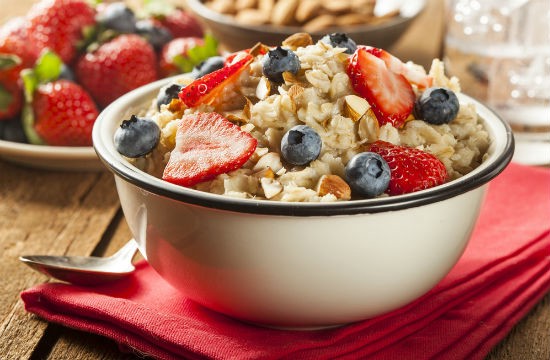Intermittent Fasting and The Most Important Meal of the Day
Few meals have met as much controversy as breakfast. Recently the once touted, “most important meal of the day” has been under assault by intermittent fasting diets. So what’s the deal? When it comes to breakfast and weight loss, should you or shouldn’t you.
Let’s begin with intermittent fasting. What is it? How does it work? And is it for you?
Intermittent fasting has been around for a little while now and is widely based on the idea that our hunting and gathering ancestors cycled through periods of fasting because, well they just couldn’t run down the boar or find the berries. The argument is that modern day society provides us with too much food and not enough famine. The exact methodology of IF depends on the diet. Some severely restrict calories for two nonconsecutive days of the week and don’t count calories for the other five. Other methodologies allot a certain time window for eating.
So what’s the science? Research boasts that IF can result in improved insulin sensitivity, reduced inflammation, improved cardiovascular health and of course, weight loss. The Journal of Aging Research Reviews http://www.sciencedirect.com/science/article/pii/S1568163716302513[1] maps out some of these affects and how IF can induce them.
So what’s the problem? The majority of these studies fail to separate IF from basic calorie restriction. In fact, often when compared head to head, calorie restriction without intermittent fasting is equally affective as IF dieting. One of the major benefits of IF seems to be its relationship to circadian rhythms. Our hormones fluctuate throughout the day; for example, our bodies are more adapt at metabolizing glucose in the morning than they are at night. IF dieting may have many causal affects such as limiting people’s eating to daylight hours, and causing a secondary decrease in calories.
So, is intermittent fasting for you? Maybe. There are a few downsides to intermittent fasting. According to The Current Opinion in Endocrinology, Diabetes, and Obesity[2], skipping breakfast can be detrimental to insulin sensitivity. The study looked beyond causal relationships to examine the affects of breakfast on weight and insulin sensitivity. Results showed that while skipping breakfast amounted to a daily net calorie reduction, physical activity also declined and there was no significant loss in weight, compared to breakfast eating groups. Insulin sensitivity, on the other hand, was adversely affected by skipping breakfast.
Okay, lets regroup. There are loads of studies supporting the benefits of intermittent fasting. There are piles of studies saluting the necessity of breakfast. So, what’s the deal when it comes to “the most important meal of the day”? Should you, or shouldn’t you? Sorry, but there’s no one size fits all answer for this one.
When it comes down to it, what you eat matters more than when and how. Our hunter and gatherer ancestors didn’t have the same access to high fat, high calorie foods as we do. So even if you eat within a small time window, you can do a lot of damage, especially if you reach for the wrong foods. So if you are debating your own meal approach, ask yourself a few questions.
Are you hungry in the morning? If so, you should probably eat breakfast. If not, breakfast may not be a crucial meal for you. Do you have time to eat quality food during the day? If not, you may be setting yourself up for a binge. Think of those days you come home starving, open the fridge, and eat everything. Within five-minutes you have managed to make and eat a cheese, meat, chocolate, butter sandwich. My best advice: spend two weeks eating breakfast and then two weeks implementing IF. Try to stick to the same calorie range and choose a diverse range of whole foods. Focus on how you feel during each trial. Eat in the way that allows you to feel, function, and be your best.
[1] Mattson MP, Longo VD, Harvie M. Impact of intermittent fasting on health and disease processes.Ageing Research Reviews. 2016. doi:10.1016/j.arr.2016.10.005.
[2] Dhurandhar EJ. True, true, unrelated? A review of recent evidence for a causal influence of breakfast on obesity.Current Opinion in Endocrinology & Diabetes and Obesity. 2016;23(5):384–388. doi:10.1097/med.0000000000000281.
Who We Are
Who We Are What We Do Essential Knowledge Contactwww.allswell.co
Originally published at medium.com


